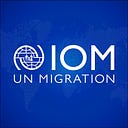E-Waste Management in displacement settings: recycling of solar waste in camp settings in East Africa
With the support of Innovation Norway, IOM’s E-Waste Project responded to the problem of ill-managed disposal of solar products in displacement settings by piloting a cost-effective solution for the repair, reuse and recycle of these products and components through creation of a circular economy.
The project has produced learnings around the unique factors affecting electronic repair and e-waste management in displacement settings, and is in the process of publishing a global Toolkit for the Creation of a Circular Economy for E-waste in Displacement Settings in collaboration with other e-waste management projects by World Food Program, UNHCR, GIZ and UNITAR in order to help ‘green’ existing humanitarian operations in other locations.
Over recent years, off-grid solar products have been deployed in displacement settings through humanitarian aid and the management of its waste has become a challenge.
The rapid production of e-waste is affecting humanitarian settings, where products such as solar lanterns are distributed as a response to a crisis to reduce human suffering, but without proper long-term management can impede the principle of “Do No Harm”. Tackling this challenge does require a multi-faceted approach, including the private sector, to enable humanitarian organizations to be responsible for the waste they bring into displacement settings, to address both the immediate and long-term needs of displaced people.
In East Africa, the most common way of disposal is often burial, burning, latrine disposal and open fields which can be very damaging for the health of local communities and the environment. Cosmos Lomuyu, a community leader recalls “It is helping children to read their books. We were using small torches from market before but the torches only last two weeks and the battery dies. We would throw the batteries in the bush.”
Solar products, like any other materials, break down, or come to their end of life but unlike in any other environment, two main challenges face displaced communities:
- effective local repair is impossible due to lack of affordable services, spare parts and technical capacity, and useless warrantees with no way to return products to international suppliers
- waste has a value in displacement settings, with products often kept in households for on-sell or pick apart, with toxic elements harming human health and the environment.
Nineteen-year-old Jacob Dongo a resident of Bidibidi Zone 1 told us “The repair service has helped us because since when the light got spoiled, we weren’t using it. When I heard from community mobilisers that they were repairing lights I was happy as it has helped me now as it’s working like new. The light is helping me at night to see snakes and scorpions”.
The E-Waste program aims at improving this e-waste management through repair, reuse and recycle of the solar products distributed by humanitarian aid. It focuses on prolonging energy access to affected communities, supporting livelihoods and encouraging manufacturing and procurement practices to be more sustainable.
The E-Waste project is taking place in Bidibidi Refugee settlement in Uganda and now seeks to scale and transform the humanitarian e-waste supply chain into an e-waste value chain, by providing local business opportunities for e-waste collection, separation, repair, recovery, recycling and final disposal. The partnership approach involving private sector actors and the close engagement of local governance structures allows the initiative to be financially, environmentally and socially sustainable, creating a local closed-loop system that can be replicated in other camps within Uganda, but importantly also in other countries and regions, whilst simultaneously encouraging transformation of the larger enabling environment such as national e-waste policies and global humanitarian procurement policies.
